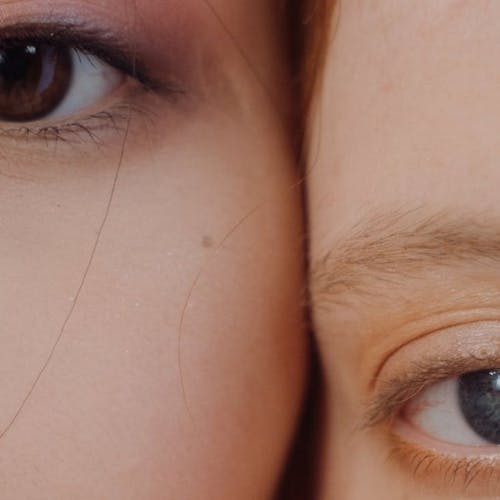This website uses cookies to enhance the user experience. By using Yoppie you are agreeing to our use of cookies.
Breast Tenderness After Your Period? Here's What It Could Be
Written by Yoppie
02 Aug 2021
How common is breast pain, and what’s causing it?
What are some possible causes of noncylical breast pain?
What can I do about painful breasts?
Should I see a doctor?
Breast pain got you down? We’ve talked on the blog about why you might get sore and tender breasts before your period, but what about if that pain happens after your period? We’re taking a closer look at why this happens, what to do about it, and how to ease the discomfort. Let’s sort out those achy boobs of yours…
How common is breast pain, and what’s causing it?
As a symptom of premenstrual syndrome (PMS), breast pain is relatively common. Studies show that 60% of UK women report experiencing breast pain, and whether it’s premenstrual, post-menstrual or for another reason, as a nation it seems our boobs are suffering!
There are two types of breast pain, and our previous blog post covered the cyclical kind - if you haven’t read it, you’ll find it here. This is the kind of pain and tenderness that’s linked to your menstrual cycle, and comes with PMS symptoms before your period, but if you’re dealing with pain after your period, this is referred to as noncyclical breast pain. This is nowhere near as common as cyclical breast pain and does not follow the menstrual cycle, but it’s still important to find out what’s causing it. In some cases it can be difficult to identify, since the breast is dense with tissue, and it’s not always easy to pinpoint the pain.
What are some possible causes of noncylical breast pain?
Just like other parts of your body, there are many possible reasons your breasts (or one breast) could be experiencing pain, tenderness or discomfort. Here are a few of the most common causes of noncyclic breast pain:
Pregnancy - Breast pain can be one of the first signs of pregnancy, and it can begin as early as 1-2 weeks after becoming pregnant, because your body’s hormones are preparing to support the growth of a baby.
Breastfeeding - Breastfeeding often causes breast tenderness, discomfort and sometimes pain. This might be dry, cracked nipples, pain while breastfeeding, or an inflammatory condition like…
Mastitis - Mastitis is caused by inflammation or infection of the breast, and most commonly occurs in women who are breastfeeding. It causes symptoms such as swollen, hot areas on the breast, a burning pain, lumps, or nipple discharge. Mastitis is usually easily treated, but it is important to see a doctor if you experience these symptoms.
Heavy breasts - Those with larger, heavier breasts could develop pain, usually due to overstretched Cooper’s ligaments (ligaments that support the breasts). This can happen over time if you wear an unsupportive bra, and the pain is usually more prominent after exercise.
Thrush - Yup, thrush can cause breast pain, as strange as it sounds. Thrush is a fungal infection, and it can develop anywhere on the skin, including the nipples. Breast and nipple thrush (known as BNT) is mostly found in those who are breastfeeding, and symptoms include itching, burning or cracked nipples, nipples that appear flushed, shiny or flaky, a blister-like rash, and shooting pains in the breast. Thrush is easily treated with medication from your GP or pharmacist.
A breast injury or surgery - Just like other parts of the body, breast injuries can happen while playing sports or exercising. If this happens and the pain doesn’t improve, speak to your doctor, especially if you notice severe swelling, lumps, a bruise that doesn’t go away, redness or warmth, which can be a sign of infection. Similar symptoms can happen if you have had breast surgery, including implants. If you are experiencing pain after surgery, always discuss this with your doctor to make sure there are no complications.
Another medical condition - Breast pain is often easily treated and nothing to worry about, and it’s unusual for breast pain to be a sign of anything serious, like cancer. However, it is not impossible for this to be the case, so it’s best to get any pain checked out ASAP, especially if it coincides with symptoms like breasts that are red, discoloured, swollen, heavy, or with thickened or dimpled skin. Don’t delay getting this checked out for peace of mind.
What can I do about painful breasts?
A pain in the breast can be a pain in the neck! Your GP can suggest treatments for your specific situation to treat the underlying cause of your pain, but some other at-home remedies include:
- Decreasing your salt intake - Salt causes water retention and swelling of the breasts, which makes them feel sensitive. Reduce salt to alleviate this.
- Increase your fibre intake - Fibre is known to remove excess hormones from the body, so it’s a great one to add to your diet to relieve hormone-related breast pain.
- Massage breasts - There are many benefits of breast massage, one being pain relief. Try this in the shower or with some oil to make the massage smoother.
- Apply ice - Ice can bring down some of the breast swelling and therefore reduce pain, so use an ice pack (not directly against the skin) to do this.
- Get a well-fitting bra - A better bra can reduce discomfort and pain, so get a well-fitting bra for daytime, and a supportive sports bra for exercising.
Should I see a doctor?
Talking to a doctor can do more good than you might realise, as studies show up to 85% of those with breast pain will show “alleviation of pain episodes after getting reassurance of not having breast cancer”. So once you know there’s nothing to worry about, you could start to feel better.
Always see a doctor if you start to experience:
- Infection symptoms like flushing, swelling or fever
- Pain when breastfeeding, or signs of mastitis
- Any lump or growth in the breast or armpit
- Any symptoms of breast cancer, like a change in size, shape or texture of the breast or nipple
Feel free to reach out in our private Facebook group or drop us a note on Insta @itsyoppie; and if you find something unexpected in your boobs, don’t put off speaking to your GP to make sure everything is A-OK. Remember that our personalised period box can get organic tampons, hormonal supplements and more delivered easily and regularly through your letterbox, so that's one load off your mind about everything that's going on with your body.
Fact checked by Doctor Samantha Miller.
Section jump
Back to top
Subscribe To Our Newsletter
YOPPIE





© 2026 Yoppie is a registered trademark of Phlo Technologies Ltd.
Yoppie's supplements are not a substitute for a varied diet and healthy lifestyle and are not intended to diagnose, treat, or cure any disease. If you are pregnant, breastfeeding, have a medical condition or are under medical supervision, please consult with your doctor before taking any of our products.






